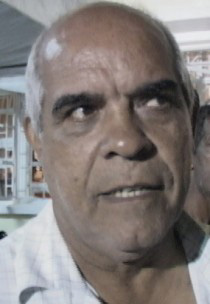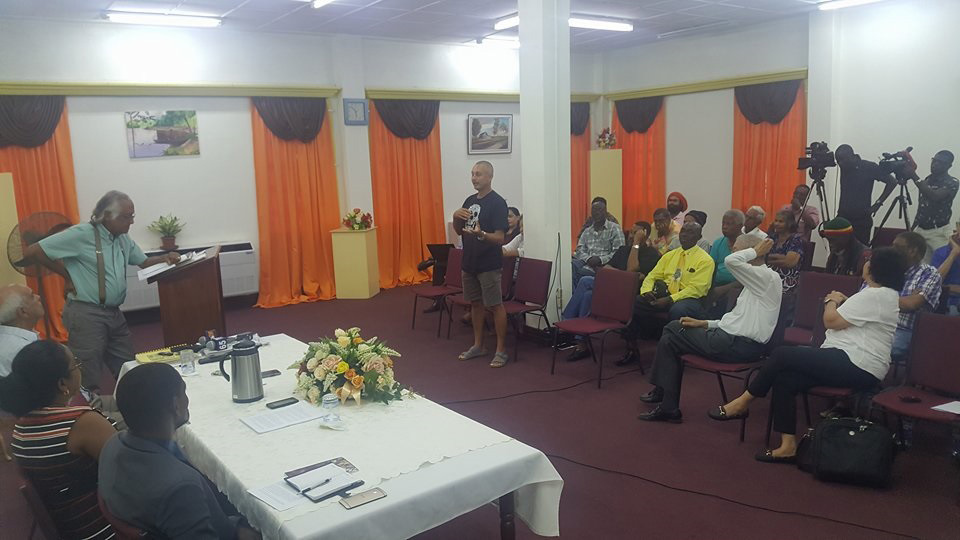A legal challenge is the only recourse to suspend the Production Sharing Agreement (PSA) signed between the Guyana Government and ExxonMobil subsidiary Esso Exploration and Production Guyana Limited (EEPGL) and its partners, according to analyst Ramon Gaskin.
“Any Guyanese who is sufficiently aggrieved could approach the courts to look at this matter. Anybody can do it. You can do it yourself if you want to… Once there is illegality, you can go to the courts and get the judges to pronounce,” Gaskin said on Tuesday, when he launched his new political party at the National Library.
“In the same agreement, it says that even new governments can’t change it, so eventually you will have to go to the court to get it adjudicated. The court is the only way,” he added.

He was responding to a question asked by attendee Leon Saul about whether there a basis to halt the contract and what citizens could do to ensure the contract was “taken back.”
Gaskin said that there are already breaches of the law, such as where the company was given 600 blocks when it is laid out clearly in the Petroleum Act that the maximum should be 60. He called this violation “more than grounds” for litigation.
He pointed out that government has already said that it would not revise the agreement and that it was up to the public now to exert pressure on it to show that the citizenry is not satisfied “with what we got out of this terrible deal.”
As a result, he believes that the court is the only recourse left.
“The only way to upturn this now is through the court system. There is no other way,” Gaskin stressed.
“…It requires people bold enough to come forward. We don’t know if it will happen but we hope it does,” he told attendees seeking advice on going forward, as it relates to the contract.
Minister of Natural Resources Raphael Trotman last week said that the APNU+AFC government has no plans to revisit the contract as it believes that it got the best deal in the circumstances.
“I am not at present advised that government has any intention of revisiting that agreement,” Trotman said.
“As I have said, when we weighed… what we were getting as against what we are not getting, we decided—as I have said before—that this was what we are going to content ourselves with,” he added.
But Gaskin heaped criticism on Trotman, saying that he was a pathetic excuse for a minister to agree to the terms of the contract, especially the paltry US$18 million signing bonus, the numerous tax exemptions granted, and the cost recovery regime.
“Trotman is a lawyer but I don’t think he read the agreement… the Constitution of Guyana is clear on these matters. All monies paid to the state should go to the Consolidated Fund…,” he said, while referring to the criticism over the government’s decision not to place the funds into the Consolidated Fund.
He also charged that Trotman agreed to a subordinate role for the Minister of Natural Resources given that the contract says that it was the role of the minister to submit a receipt to the Guyana Revenue Authority indicating that Exxon paid its taxes.
“This agreement says that the minister should bring to Statia a receipt from Exxon to show that they paid all the taxes. He is a water boy for them. Trotman signed to this, that he is a water boy. Can you imagine this? He is a water boy. A minister would sign a paper to be a water boy. In which part of the world could a minister be water boy? He would bring the receipt and say, ‘Bossman, this is the thing. Yuh safe, yuh irie, this is it. Thing hay nice,’” he said.
Attorney Christopher Ram, who served as a moderator at the launch, echoed much of what Gaskin said but added that Trotman as an attorney should have better guided his government in dealing with the PSA.










